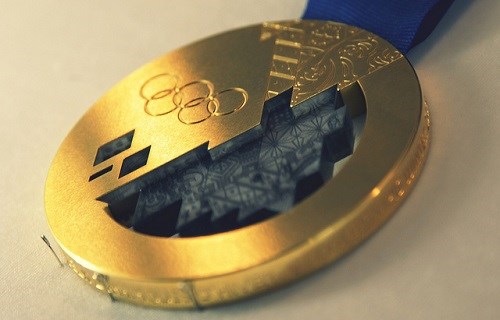Allegations of Russian doping at Sochi 2014 prompt WADA probe
Updated 13 May 2016
In an interview in CBC’s '60 Minutes', Vitaly Stepanov, a former anti-doping officer with Russia’s anti-doping agency, RUSADA, put forward new damning allegations about systemic doping in Russian sport that may make it even harder for Russian athletics to be cleared for participation at the upcoming Olympic Games in Rio.
Among the information provided in the interview is the existence of a ‘Sochi list’, allegedly containing the names of four Russian Sochi 2014 gold medal winners who are claimed to have been doped and the claim that the Russian secret police, the FSB, were working under the cover of being anti-doping personnel at the laboratories allowing them to cover up doping offences.
“A real cause for concern”
WADA acted promptly on these latest allegations with a statement promising to take action right away.
“WADA will probe these new allegations immediately. The claims made in the program offer real cause for concern, as they contain new allegations regarding attempts to subvert the anti-doping process at the Sochi Games,” WADA President Craig Reedie says in the statement.
The source of these new allegations is the former head of the Moscow anti-doping laboratory, Grigory Rodchenkov, with whom Vitaly Stepanov has been leading Skype conversations, conversations that Stepanov says he has recorded. 60 Minutes confirm that they have heard the tapes, unlike WADA.
“WADA has not yet been able to independently verify these allegations, but will now conduct further inquiries into the allegations without delay,” says the WADA statement. “This includes initiating the process to access the recorded conversations in which Dr. Rodchenkov aired his views, as cited in the program.”
A state-supported doping system
The Russian couple first shared their stories of an organised system that encouraged and helped athletes to dope in a German ARD documentary aired in December 2014. The testimonies about systemic doping in Russia initiated the establishment of the WADA Independent Commission, led by Richard W. Pound. In two reports, the commission recommended a ban on Russian athletics for running a state-supported doping system and disclosed extensive corruption, nepotism and abuse of power in the International Association of Athletics Federations (IAAF) as well as an undermining of the anti-doping structure in the association.
After the WADA report was published, the IAAF established an inspection committee whose task is to decide whether Russian athletics’ ban can be revoked in time for Russia to compete at the Rio Olympics in spite of the damning allegations. The IAAF commission is headed by Norwegian Rune Andersen and Russia can expect the conclusion on 17 June.
“Based on speculations”
Commenting on the allegations presented in the 60 Minutes interview, Vitaly Mutko, Russia’s sports minister slams Vitaly Stepanov for “riding his hobby-horse again” and calls the revelations “based on speculations”.
“It is obvious that someone wants to harm Russian sports,” Mutko said to Russian news agency TASS.
WADA takes a different stance towards the whistleblower-couple.
“There is no question that the Stepanovs provided vital information and intelligence that allowed the Commission to be established; and, without which, widespread doping in Russian athletics may never have truly been exposed,” said WADA president Reedie in the statement.
The couple spoke (via a Skype connection) at the opening of Play the Game 2015 and told delegates about their experiences after blowing the whistle on doping practices in Russian athletics.
"We have no regrets and obviously we are hoping that by doing our small part maybe we can help make sport competitions a little more fair and honest so clean athletes have more chance," Vitaly Stepanov said.
New detailed allegations
In an article in The New York Times, published on 13 May, Grigory Rodchenkov lays out his own version about about how Russian athletes’ positive doping tests were covered up during the Sochi Olympics, revealing details of how "as many as 100 dirty urine samples were expunged," writes The New York Times.






